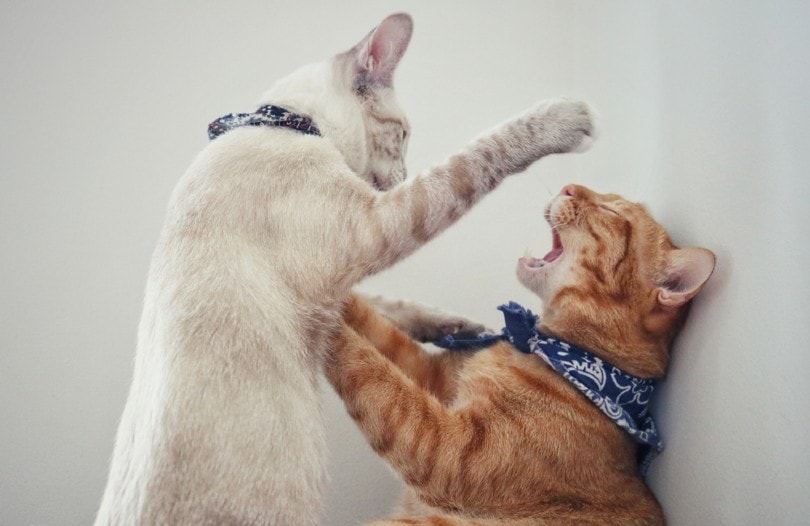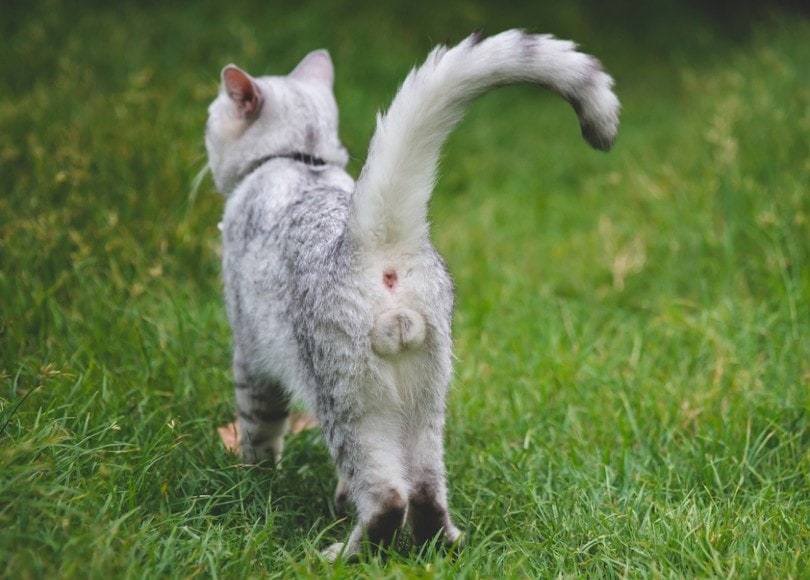Will Cats Share a Litter Box? Vet Reviewed Facts & FAQ

Updated on
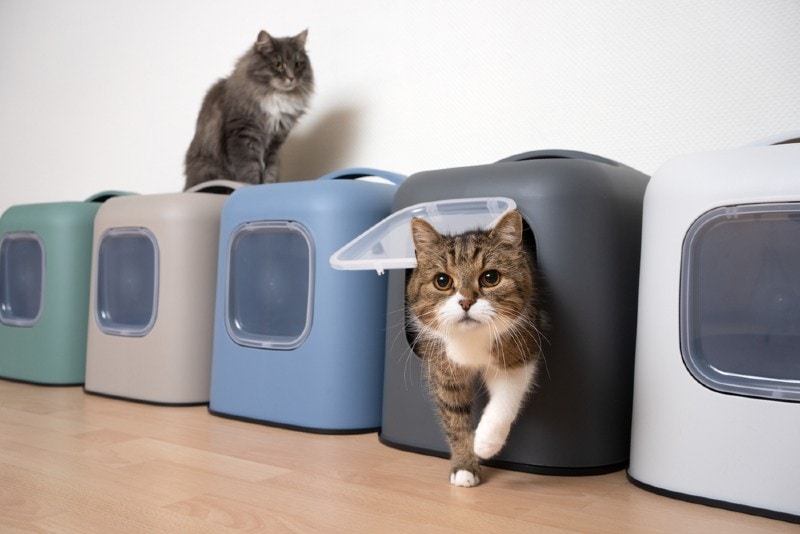
While keeping a single cat is not a significant investment, having several of them can pose a problem when it comes to litter boxes. This brings up the question, do cats share a litter box?
Many cats will share a litter box. However, it is better for each cat to have its own litter box, plus one extra. Let us find out why.
Cats Love Privacy
Cats are territorial animals which is unsurprising because they are domesticated relatives of wild cats. All wild cats, such as jaguars and leopards, control extensive territories.
Under normal circumstances, cats mark their territories by rubbing themselves on sofas, walls, and table stands. Due to the availability of food and tender love and care from their owners, the cats will bear the other’s presence. But when it comes to litter boxes, the largest and most aggressive cat will claim it as its own space. To ensure the space remains under its grip, it will ward off other cats, resulting in fights.
If the indoor space is large enough, timid cats will avoid the litter box and relieve themselves elsewhere.
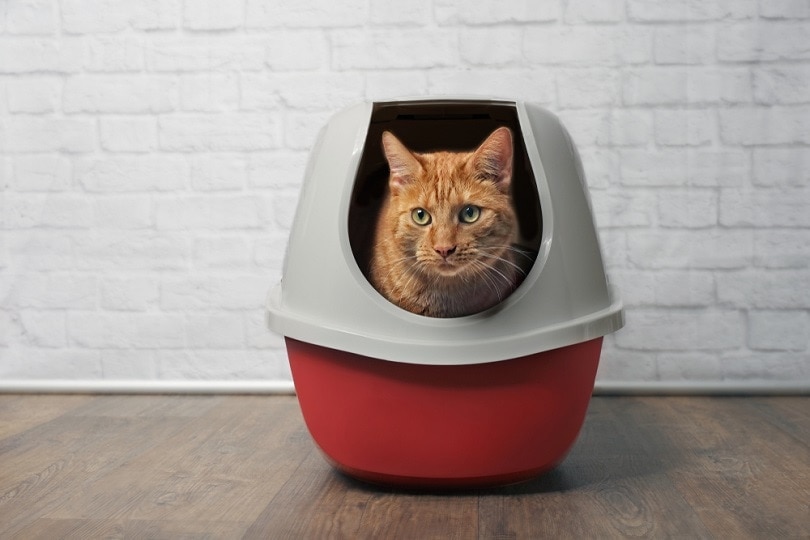
Cats are Solitary
Cats love to keep to themselves. This means everything from hunting to relieving themselves is a private affair. So forcing several cats to use the same litter box is against their instincts, and they may not take to it well.
Cleanliness
Cats love clean litter boxes. As a general rule of thumb, you should scoop the waste at least once a day. In contrast, replace the litter two or three times a week or when you notice much of the litter is clumped together or is wet.
If you allow more than one cat to use the same litter box, this means you must clean it several times a day, or the animals will be stressed when the box starts filling up. Of course, you can reduce bad odor by ensuring the toilet area is clean and well-ventilated.
But when it comes to litter clumping together due to frequent use, there are no other solutions other than replacing it.
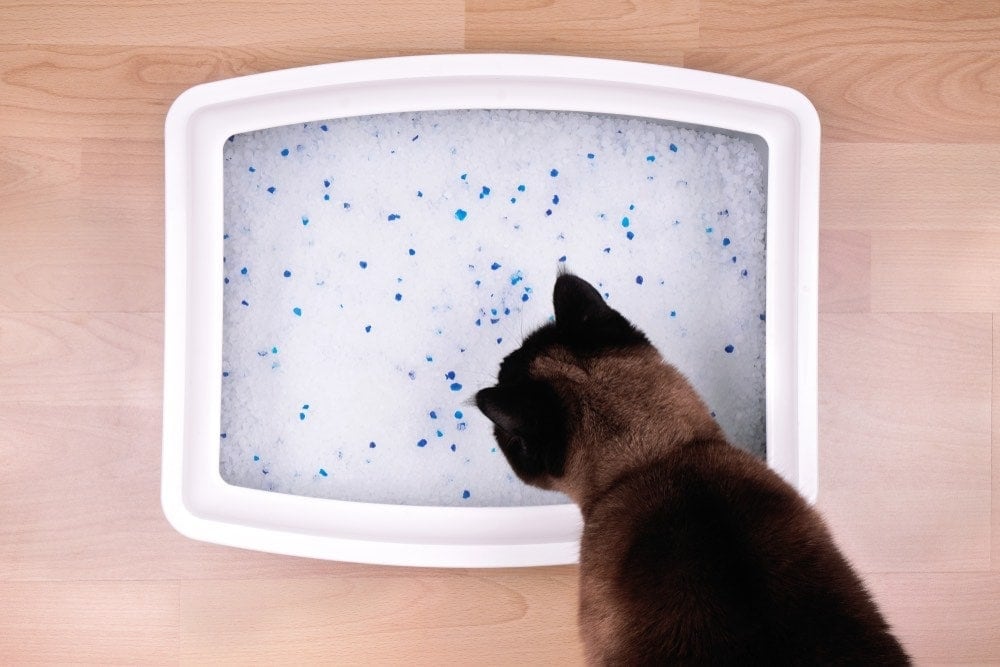
Health Problems
While you may think stress is the only health problem associated with litter box sharing, there are other complications. For instance, cats that wait for too long before going to the toilet because of the bad conditions of the litter box or in fear of being ambushed by a dominant cat often suffer from urinary tract problems.
Feline Lower Urinary Tract Disease is an example of such a problem. The disease is an umbrella term for many disorders, such as blocked urinary tracts, inflated bladder, and urination problems that may be caused by litter box stress.
How Do You Stop Aggression Around Litter Boxes?
The best way to stop litter box aggression is by providing individual cats with private boxes. Additionally, scooping waste frequently removes not only the source of the bad smell but also the scents produced by rival cats.
An anti-stress diffuser is a synthetic version of pheromones produced by cats to keep them calm. When you spray the diffuser around the toilet area, the cat will be less anxious, which may prevent bad behaviors. Veterinarians may also advise you on how to reduce litter box aggression, however, your best bet is to have one litter box per cat, plus one extra. So, if you have two cats, you’ll need 3 litter boxes ideally.
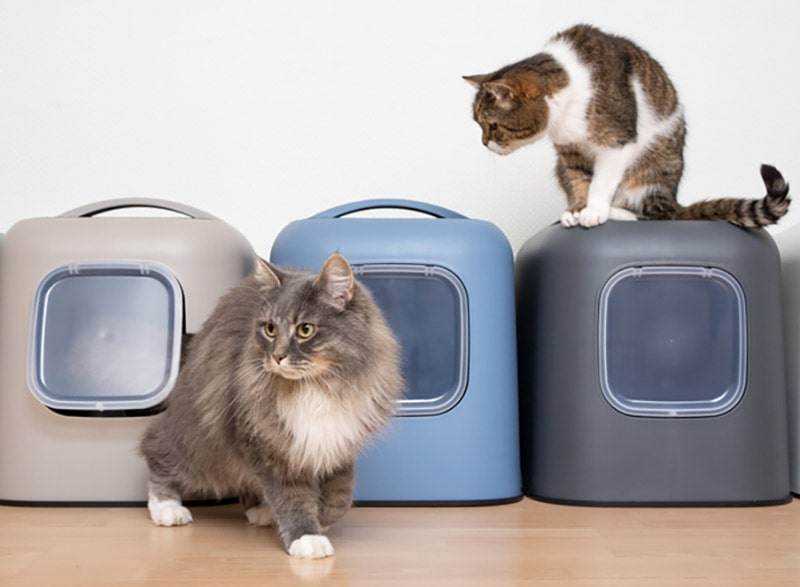
Kittens will happily share a litter box because they have a solid sibling-to-sibling and mother-to-offspring bond. The rivalry will start manifesting when they reach sexual maturity.
How Many Litter Boxes Should You Allocate to Each Cat?
Now that we have found a single litter box for more than one cat is not ideal, you might consider adding more. Of course, this is a good idea, but how many more litter boxes should you buy?
A straightforward answer is one extra box. For example, if you have three cats, use four litter boxes. The additional litter box is for cats to use in case their primary box is dirty or you have taken it out for cleaning.
Conclusion
Contrary to kittens, mature cats are not fond of sharing litter boxes. This is because they are territorial animals, love private spaces, and might fight with each other. A single litter box also requires frequent cleaning.
Featured Image Credit: Nils Jacobi, Shutterstock



